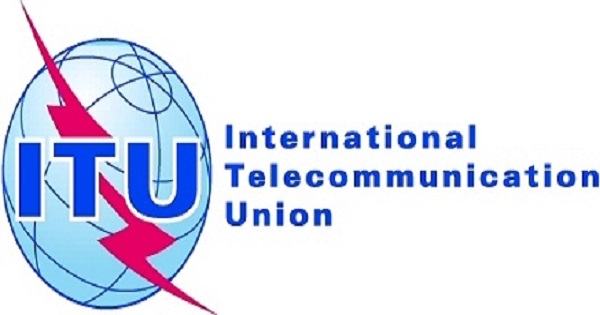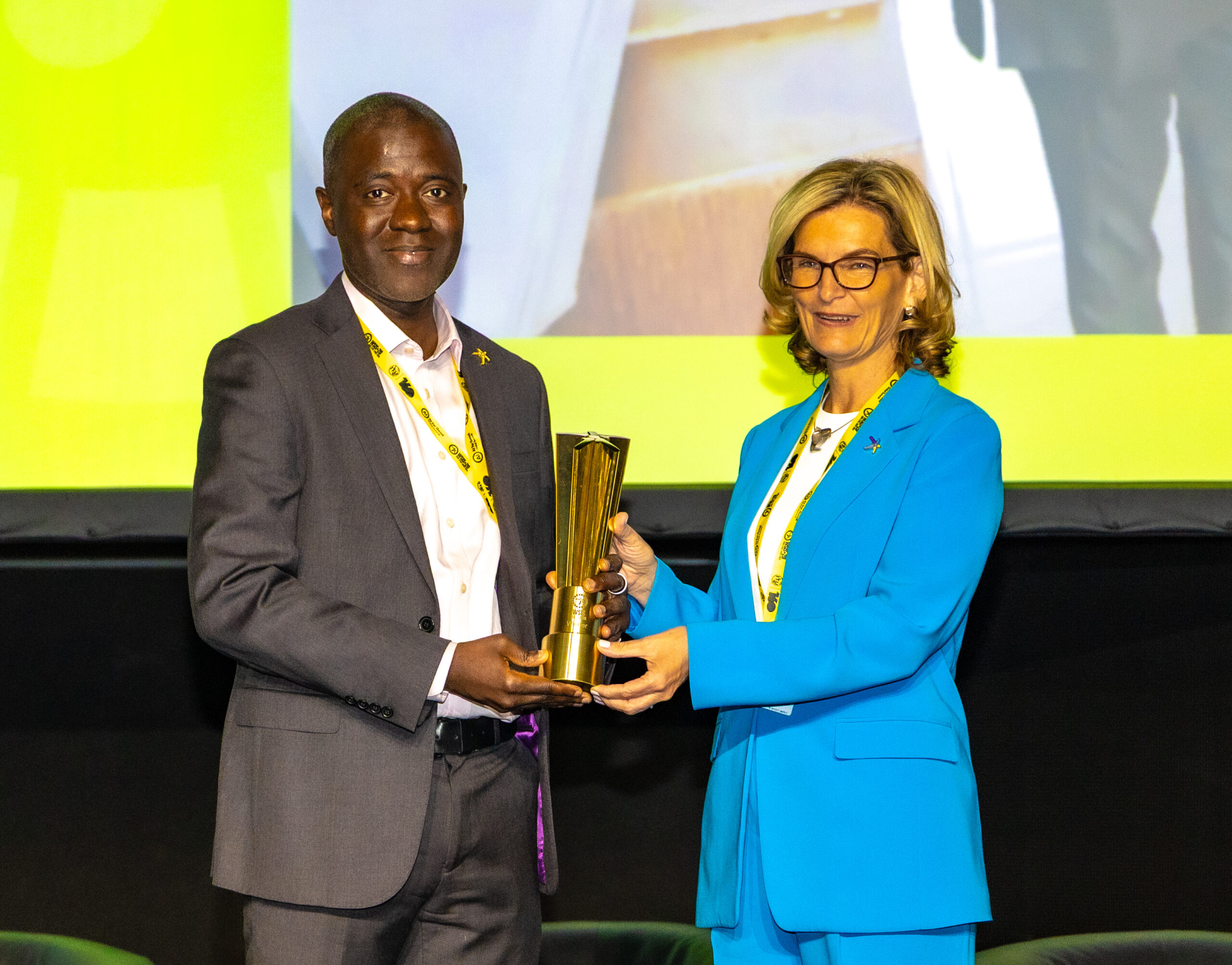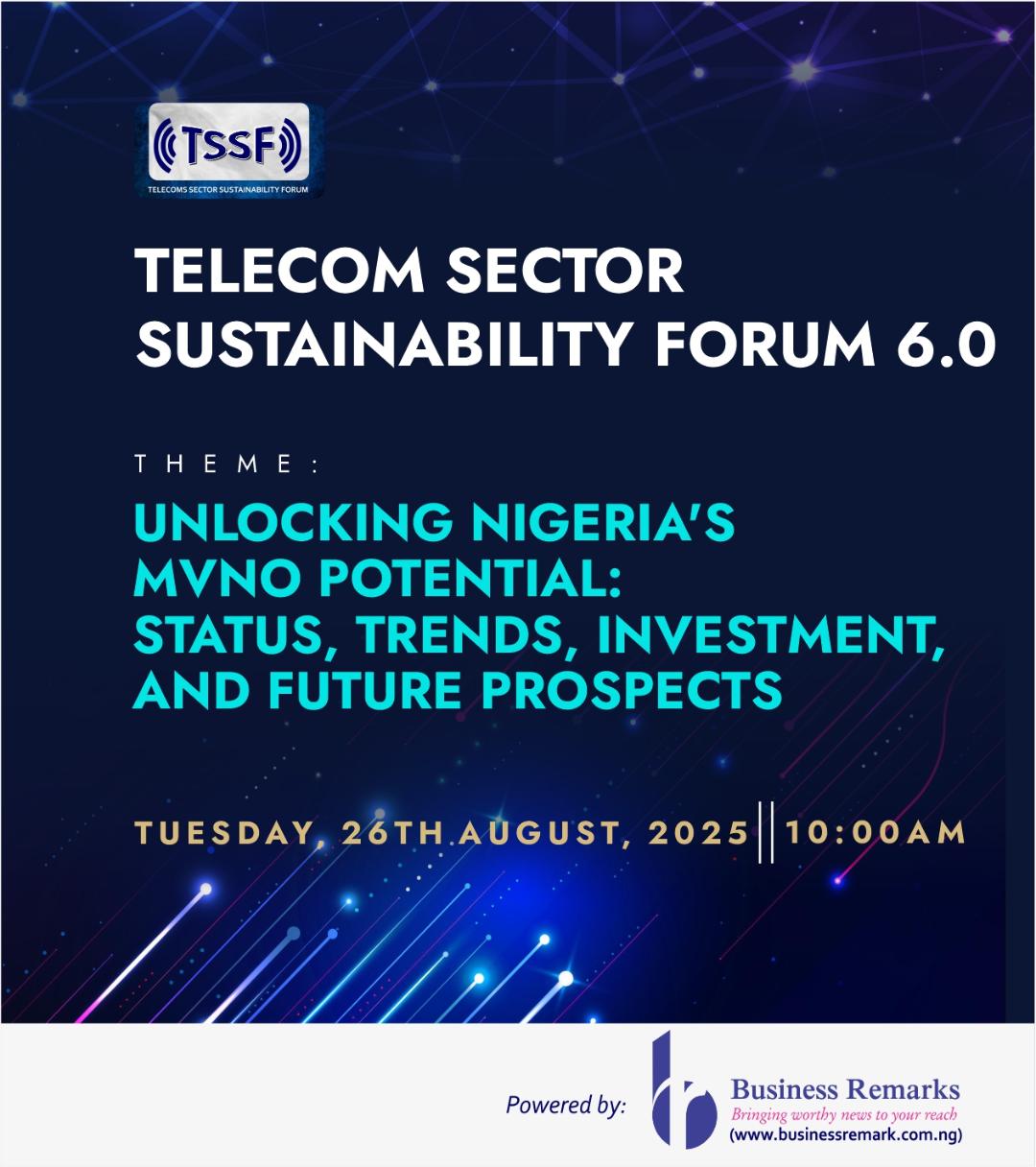Telecom
ITU Rolls Out Regulatory Guidelines for Digital Transformation

International Telecommunication Union (ITU) has released the 2020 Global ICT Regulatory Outlook, and rolled out regulatory guidelines for digital transformation.

The guidelines include the benchmark of Fifth Generation Collaborative Regulation, a new tool for policymakers and regulators to leverage digital transformation for all through stronger collaboration across sectors.
Speaking about the new regulatory guidelines, Mr. Houlin Zhao, secretary-general, ITU, said: “Collaboration across sectors proves increasingly successful in piloting regulators and policymakers towards broad and inclusive digital transformation. Indeed, digital technologies and services are transforming lives across society – from agriculture to smart water management systems, and ITU stands ready to support regulators and policymakers around the world. The ‘G5 Benchmark’ serves as a compass for regulators on their journey towards digital transformation for all.”
According to him, the benchmark of Fifth Generation Collaborative Regulation, also referred to as the ‘G5 Benchmark’, would help to fast-track collaboration among regulators and policymakers from the ICT sector and other sectors to drive digital transformation for all.
As the ICT landscape is complex and fast moving, the ‘G5 Benchmark’ offers metrics to assess gaps, proposes smart roadmaps through shifting regulatory landscapes, tracks progress and proposes solutions where concrete progress towards the Sustainable Development Goals has proved challenging, Zhao said.
He added that the concept of ‘regulation generations’ would help stakeholders to analyse the maturity of modern regulatory frameworks – from the command and control of first generation (G1) regulation, to a collaborative and harmonised approach in fifth generation (G5) regulation.
The 2020 Global ICT Regulatory Outlook benchmarks regulation across 193 countries worldwide and offers an objective perspective on the latest trends driving ICT policy and regulation. It also highlights six golden rules that accelerate the take-up of mobile broadband and seven rules that boost fixed broadband adoption.
ITU said its findings showed that 16 countries out of 193 now have collaborative regulatory frameworks in place to enable digital transformation for all.
“16 G5 countries now have holistic, forward-looking regulatory frameworks in place set to enable digital transformation across their economies.
“More than half of world’s population is concentrated in G2 and G3 countries, with potential to leapfrog to near universal digital inclusion. Meanwhile, a quarter of countries remain in the G3 category, making progress on stronger policy and regulation, but are unable to unlock the full potential of ICT markets,” Zhao added.
According to him, in just one decade, G4 became the established standard for every ICT regulator, with more than 50 countries in this category. However, 40 per cent of countries languish in G1 or G2 categories, missing development opportunities and increasingly adrift from global digitisation and economic transformation.
Doreen Bogdan-Martin, director of ITU Telecommunication Development Bureau, said: “The Global ICT Regulatory Outlook 2020 is as a rich, powerful and practical tool to all of us seeking to build a world of meaningful connectivity through regulation that is open across sectors, and above all, collaborative.
“It lays out clearly the trends, the challenges and the opportunities before the regulatory community in 2020 and continues to set out the decades-long ICT regulation story as our industry develops and responds to major world crises like the 2008 financial crash and COVID-19.”
Comparing the Global ICT Regulatory Outlook 2020 with regional regulations, Zhao said regulatory frameworks in Africa have evolved the most over the past ten years.
According to him, as of 2018, only two African nations remained in the G1 category.
“Africa’s score has kept pace with the rise in world averages, and has exceeded averages of the Arab States, and Asia-Pacific.
In the Americas, over a third of countries have now achieved the highest G4 and G5 generations of regulation.
“Between 2007 and 2018, the region increased its average score more than all other regions, with thirteen countries now having attained G4 status.
Telecom
NCC Wins Global ICT Award for Digital Awareness in Schools

Nigeria, through the Nigerian Communications Commission (NCC), has won the 2025 World Summit on the Information Society (WSIS) prize for its project, the Digital Awareness Programme (DAP), under Category C3, which is on Access to Information and Knowledge.

L–R: Executive Vice Chairman/CEO of the Nigerian Communications Commission (NCC), Dr. Aminu Maida, receives the WSIS 2025 Prize (Category C3: Access to Information and Knowledge) from the Secretary-General of the International Telecommunication Union (ITU), Doreen Bogdan-Martin, following the selection of the Commission’s Digital Awareness Programme (DAP) as winner of the category.
The DAP, one of hundreds of projects submitted for the WSIS Prizes competition 2025, received the highest number of votes in its category, earning it the top honour. The programme equips secondary schools across the country with Information and Communication Technology (ICT) resources and provide internet connectivity to support teaching, learning, and research. Since inception in 2006, over 300 schools across Nigeria’s six geopolitical zones have benefitted from the programme.
The Executive Vice Chairman of the NCC, Dr. Aminu Maida, received the award during the WSIS Prizes Winners 2025 Ceremony held on Monday in Geneva, Switzerland.
In his acceptance remarks, Dr. Maida thanked the hosts, the International Telecommunications Union (ITU) and WSIS, for recognising Nigeria’s efforts in promoting inclusive digital access across Nigeria, noting that the award would serve as further motivation for the Commission.
“This recognition is more than a celebration of past efforts—it is an encouragement to press forward. It affirms that investing in digital inclusion is investing in national development, and that Nigeria’s work is being seen and valued on the global stage,” Dr. Maida said.
Four other Nigerian projects—the Women Techsters and the Advanced Digital Empowerment Programme for Tertiary Institutions (ADEPTI) under Capacity Building, the Telecom-Based Research Grant Initiative under Enabling Environment, and the Digital Learning Initiative under e-Learning—were also celebrated for their nomination for the Champions Category of Projects at the WSIS Prizes Ceremony. Although they were not among the top-voted entries, they were acknowledged for their significant merit and impact.
The WSIS Prizes competition recognises and promotes projects that effectively leverage ICTs to advance sustainable development. The competition showcases how technology can serve as a powerful tool for addressing global challenges and achieving the SDGs. Projects from around the world are recognised annually, highlighting diverse approaches to building an inclusive information society.
The World Summit on the Information Society (WSIS) is a United Nations (UN) initiative aimed at building a people-centred, inclusive, and development-oriented information society. It provides a multi-stakeholder platform to address issues related to Information and Communication Technologies (ICTs) and their role in achieving sustainable development.
The Forum is an annual event that brings together high-level representatives from governments, the private sector, civil society, academia, the technical community, and international organisations. It serves as a global platform for implementing the WSIS Action Lines, which are aligned with the UN Sustainable Development Goals (SDGs).
Telecom
No More Excuses: NCC Sets Tough August Deadline to Tackle Telecom Hitches

Nigerian Communications Commission (NCC) has given telecom tower operators in the country August 2025 deadline to fix persistent network hitches in their facilities or face regulatory sanctions.

The Executive Vice Chairman (EVC) of the commission, Dr. Aminu Maida, reportedly gave the ultimatum during a high-level meeting with key industry players, attended by representatives of IHS Towers, American Tower Corporation (ATC), and Pan-African Towers, and mobile network operators (MNOs) in Abuja
According to sources, discussions at the meeting focused on the recurring challenges in the telecoms sector, particularly power failures, equipment malfunctions, and insufficient site maintenance, that have been causing poor Internet and call services in the country
Specifically, Maida tasked the tower operators on the imperative of complying with the NCC’s updated Quality of Service (QoS) framework, which now extends performance obligations to infrastructure providers, not just telecom service providers.
According to him, the timeline given by the commission is more than enough time for all parties to align with the performance standards expected of them.
Recently, to ensure compliance with the standards, the NCC introduced a Major Incident Reporting Portal for real-time outage disclosures; developed public performance dashboards to enhance transparency; mandated that telecom tower companies meet strict Key Performance Indicators (KPIs).
Although the tower operators had previously cited delayed payments from MNOs as a reason for service lapses, the NCC had dismissed the justification, insisting that all parties must meet their obligations.
The EVC maintained: “Operators must fulfill both their technical and financial responsibilities. Poor service delivery—regardless of internal disputes—will attract consequences.”
Available data on the telecom tower infrastructure shows that IHS Towers has the largest assets with 16,000–19,000 sites, (62% market share); compared to American Tower Corp’s (ATC’s) about 8,270 towers; and Pan-African Towers’ 760–1,000 sites nationwide.
The latest NCC’s August deadline is believed to be putting pressures on the tower operators to improve the quality of their facilities for improved services as the commission had hinted of its plan to sanction defaulting operators with fines or stricter regulatory actions.
Industry experts believe that the NCC’s directive is a welcomed development as it will ensure reliable Internet connectivity and improved services quality for telecom consumers in the country.
Telecom
NCC to Chart MVNO Growth Path at Telecom Sustainability Forum 6.0

Nigerian Communications Commission (NCC) is set to play a pivotal role at the upcoming 6th edition of the Telecom Sector Sustainability Forum (TSSF 6.0), where it will lead a critical discussion on the sustainable growth of Mobile Virtual Network Operators (MVNOs) in Nigeria.

Set against a backdrop of innovation and opportunity, this forum, organized by Business Remarks, aptly themed “Unlocking Nigeria’s MVNO Potential: Status, Trends, Investment, and Future Prospects,” is scheduled for August 26, 2025. This event reinforces the nation’s commitment to fostering a robust, competitive, and inclusive telecommunications landscape.
The forum will bring together a diverse array of key stakeholders from across the telecom ecosystem to deliberate on strategies for integrating MVNOs effectively into Nigeria’s rapidly evolving digital economy. With the recent advancements in technology and the issuance of 43 MVNO licenses to new players, MVNOs are poised to significantly enhance service delivery, drive digital transformation, penetrate underserved markets, and stimulate healthy competition across the sector.
As the global MVNO market is experiencing significant growth, with projections indicating continued expansion, experts believe that with the right regulatory environment and access to infrastructure, emerging markets like Nigeria can leverage MVNOs to unlock new value for both operators (by utilizing excess network capacity) and customers. Customers can enjoy a rich array of niche value-added services tailored to their needs.
Having been proactive in introducing a five-tier MVNO licensing classification, each with distinct services and a 10-year validity period, signaling a clear path for new entrants, the telecom regulator (NCC) will deliver a keynote address outlining the Commission’s regulatory framework, interventions, and commitment to ensuring a conducive environment for MVNO operations.
Mrs. Bukola Olanrewaju, Convener of the forum and Managing Editor of Business Remarks, emphasized the importance of collaboration. “TSSF 6.0 is designed to be a melting pot of ideas, bringing together Mobile Network Operators (MNOs), MVNOs, telecoms infrastructure providers, Internet Service Providers, industry associations, and technology experts,” she said.
“Our goal is to ignite discussions that will shape the future of MVNOs in Nigeria, ensuring their sustainable growth and their critical role in extending digital prosperity across the nation.”
The forum will feature interactive sessions, thought-provoking panel discussions, insightful paper presentations, and abundant networking opportunities. This event aims to provide a platform for stakeholders to share insights, address challenges, and explore collaborative pathways for sustainable growth.

 Telecom2 days ago
Telecom2 days agoY’ello Care’s 21-Day Campaign Bridges Digital Divide for Thousands Nationwide

 General News2 days ago
General News2 days agoEnugu Air Commences Operations Today

 E-Business2 days ago
E-Business2 days agoGalaxy Backbone, Rural Electrification Agency Commit to Deepening Digital and Energy Access Across Nigeria

 Broadcasting2 days ago
Broadcasting2 days agoNDPC Slaps Multichoice with ₦766M Fine for Data Privacy Violations

 News2 days ago
News2 days agoLagos-Calabar Highway Gets $100M Push from ECOWAS to Drive Regional Growth

 Telecom2 days ago
Telecom2 days ago20 Years of Digital Leadership: Layer3’s Legacy and the Road Ahead

 News2 days ago
News2 days agoNBS May Release Rebased Figures for Nigerian Economy July 11

 Telecom14 hours ago
Telecom14 hours agoNCC Wins Global ICT Award for Digital Awareness in Schools

























